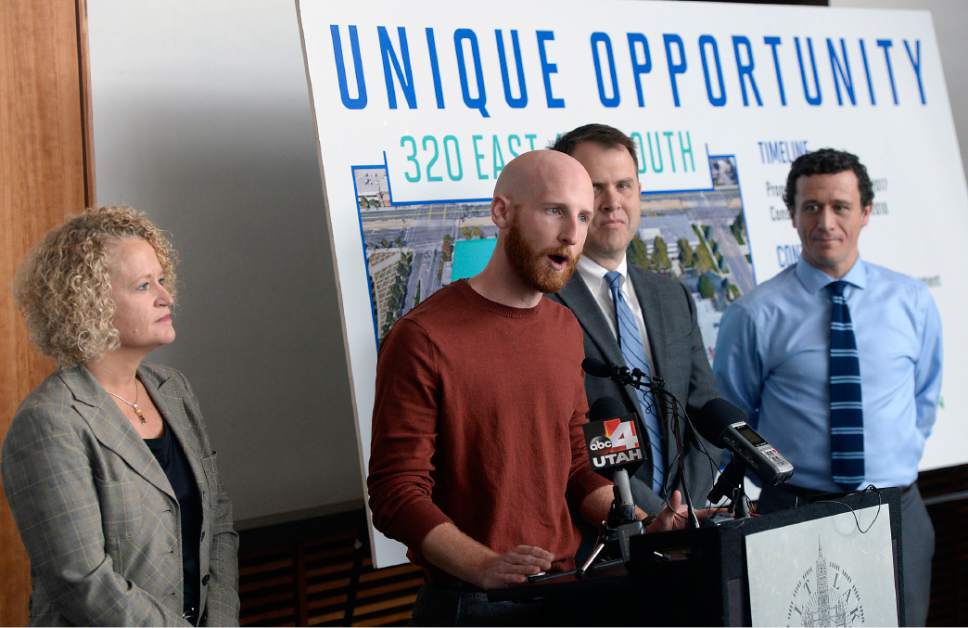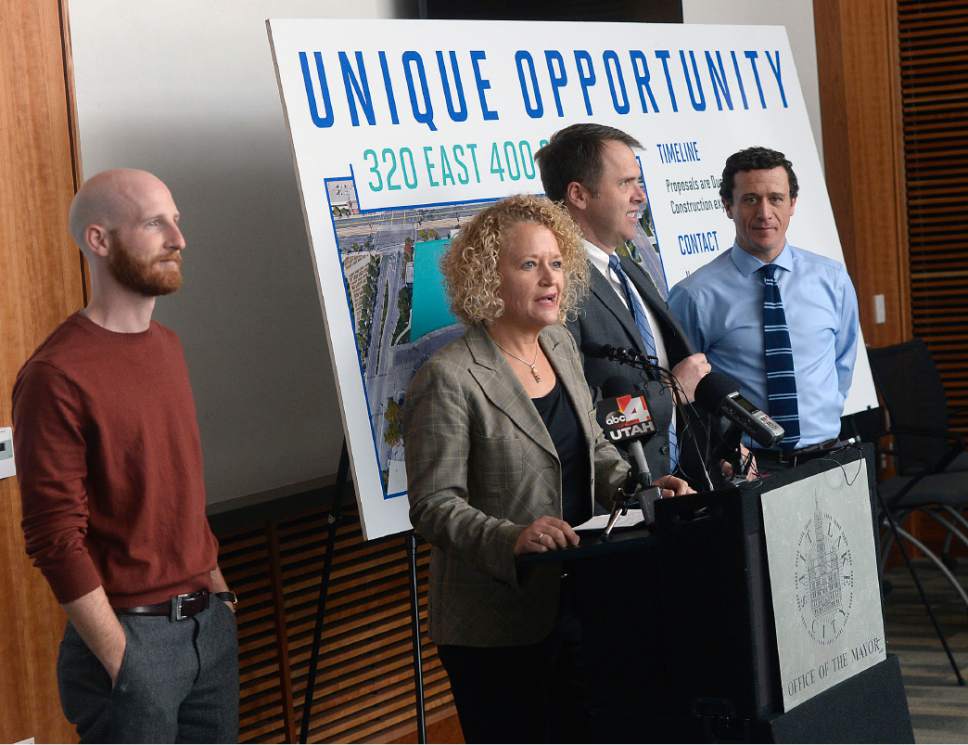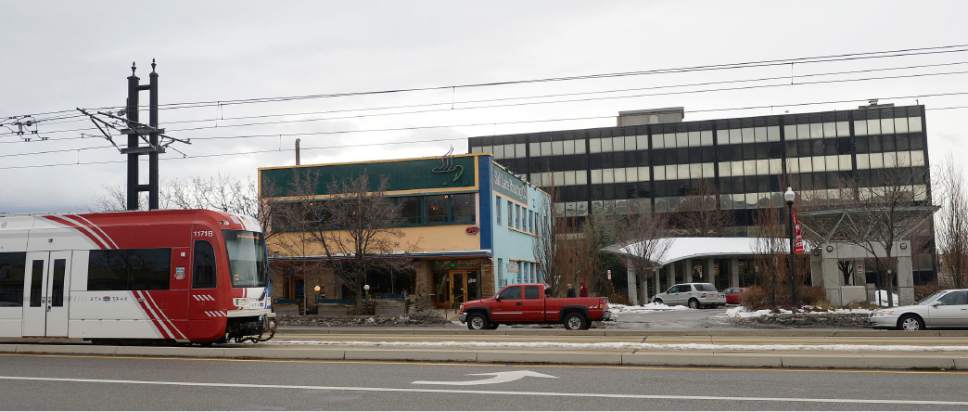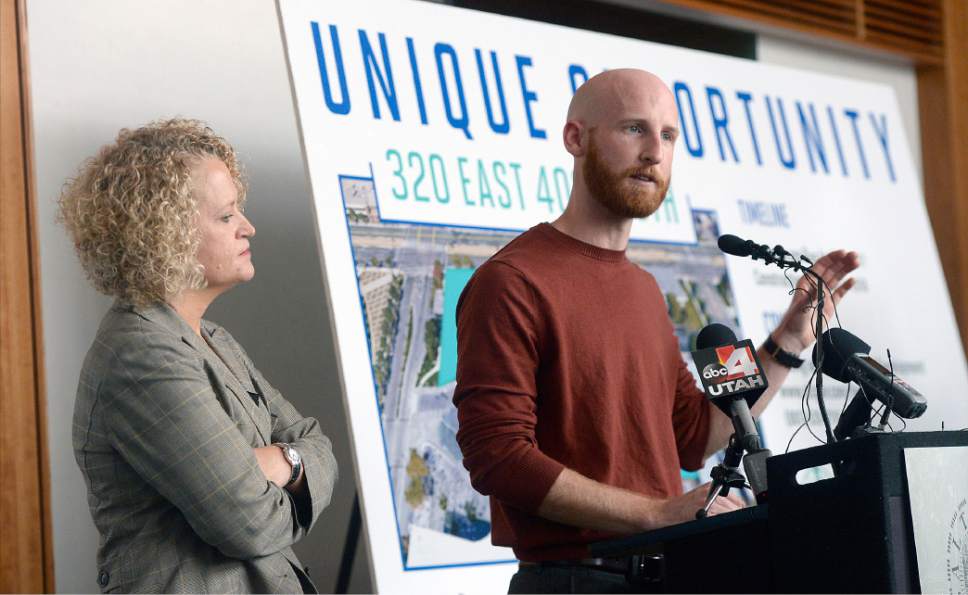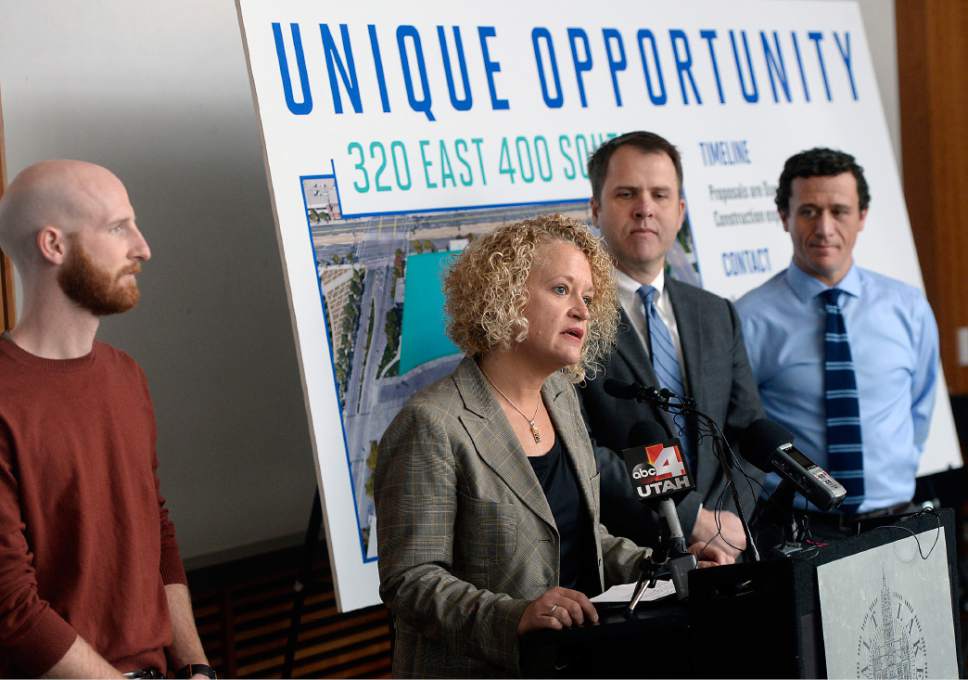This is an archived article that was published on sltrib.com in 2017, and information in the article may be outdated. It is provided only for personal research purposes and may not be reprinted.
Salt Lake City's plan to develop the northeast corner of 300 East and 400 South was described by its mayor on Monday as "bold" and "innovative," with more of the like promised in the coming release of the city's affordable housing plan.
The city wants a development at the site of the old Barnes Bank building, which it owns, that would include 40-plus "micro-unit" apartments between 250 and 500 square feet. Those would cost a maximum of 40 percent of the area median income — or about $542 per month, currently.
Prospective developers must also provide 3,000 square feet for a business incubator and 500 square feet of associated ground-level retail, and they must reserve 20 percent of remaining housing for incomes at 60 percent or less of the area median income.
"We are coming together like never before to address these tough issues, and together we can get this right," Mayor Jackie Biskupski said, speaking just south of the proposed 2.3-acre development from a podium at the city's Public Safety Building.
City Councilman Derek Kitchen praised Biskupski for doing what he feels the city ought to with its property in his district: addressing a citywide shortage of affordable dwellings estimated at 7,400 units.
The project may be financed in part by low-interest city loans, according to the request for proposal.
Beyond the Barnes Bank building, the potential development would include nearby Celtic Bank and the Salt Lake Roasting Company. Biskupski said the popular coffee stop will relocate five blocks east to 820 E. 400 South.
Some of the land was under consideration for one of four new 150-bed homeless shelters, given high marks in city documents for location but docked for required demolition and a too-small footprint.
The old Barnes Bank building was also used earlier this year to process dozens of people rounded up by police near the downtown Rio Grande shelter as part of Operation Diversion, an effort to get homeless people addicted to drugs into treatment rather than jail.
Biskupski said that earlier Monday, she was told a group of women who sang at her staff meeting included some who had been directed to the House of Hope substance-abuse center from the old Barnes Bank.
Both the mayor and the City Council say the housing crisis contributes to homelessness and ranks among their top priorities, but Biskupski was critical when council members raided the budget to set aside $17 million for that purpose in October. Those decisions "were random," she said.
Biskupski said Monday that her administration will share its long-awaited affordable housing plan — the city's first since 2000 — in two weeks.
She said: "I think what people will learn is that we have put in a great deal of thought in how we are going to come after this and try to resolve some of the issues we face in housing."
Twitter: @matthew_piper


